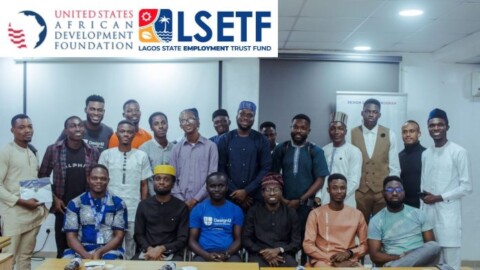The Nigerian Education Loan Fund (NELFUND) has announced a significant development in its efforts to expand access to student loans across the country. Twelve (12) additional state-owned tertiary institutions have successfully submitted their students’ data to the NELFUND portal, bringing the total number of participating state institutions to 48.
This progress marks an important step in the implementation of the federal government’s student loan scheme, which aims to provide financial support to eligible students pursuing higher education in Nigeria. The scheme is designed to alleviate the financial burden on students and their families, potentially increasing access to tertiary education for many Nigerians.
Nasir Ayitogo, Head of Media and Public Relations at NELFUND, released a statement highlighting this positive development. He emphasized that the newly onboarded institutions had successfully submitted and verified the completeness and accuracy of their student data as required by the fund.
However, despite this progress, there is still work to be done. Ayitogo noted that student data from 121 state-owned institutions is still outstanding. This gap in participation could potentially limit the reach of the loan program and leave many eligible students unable to access this financial support.
NELFUND has issued a call to action for the remaining institutions, urging them to submit their students’ data to the Student Verification Portal (SVS) as soon as possible. This step is crucial in enabling their students to benefit from the loan scheme.
For the states whose data has been successfully uploaded, NELFUND is encouraging them to take proactive steps in raising awareness among their student populations. The fund emphasizes the importance of students applying for the loans, as this can provide much-needed financial relief to those struggling with the costs of higher education.
The implementation of this student loan scheme represents a significant initiative in Nigeria’s education sector. By providing financial support to students, the program has the potential to increase access to higher education, particularly for students from lower-income backgrounds who might otherwise struggle to afford tertiary education.
Moreover, the scheme could have broader economic implications. By enabling more students to pursue higher education, it could contribute to the development of a more skilled workforce, potentially boosting economic growth and development in the long term.
As NELFUND continues its efforts to expand participation in the student loan program, it faces the challenge of ensuring all eligible institutions and students are able to participate. The success of the program will likely depend on continued cooperation from state-owned institutions and effective communication to ensure all eligible students are aware of and able to access this financial support.
The progress made with the addition of these 12 institutions is encouraging, but it also highlights the work that remains to be done to fully implement this ambitious program across Nigeria’s diverse higher education landscape.





